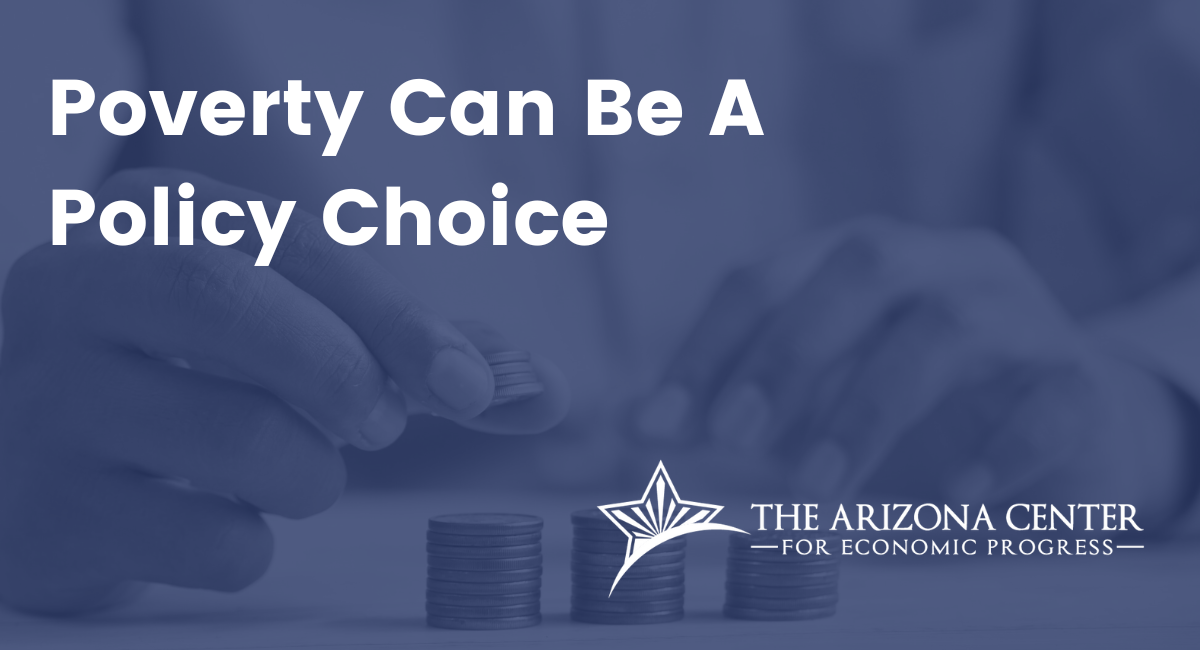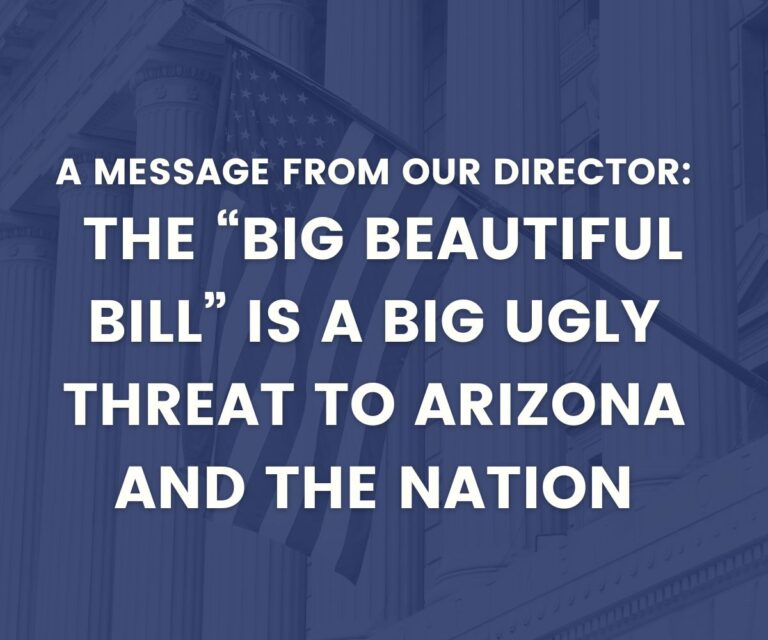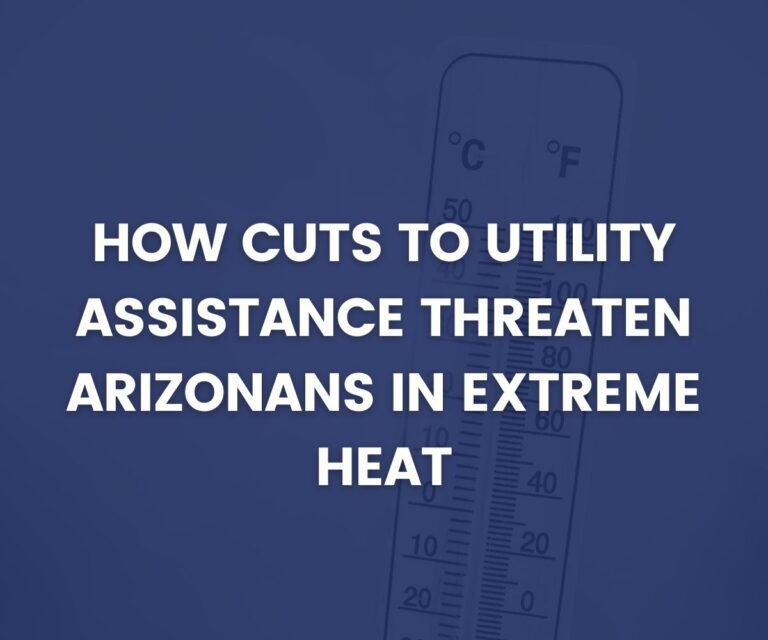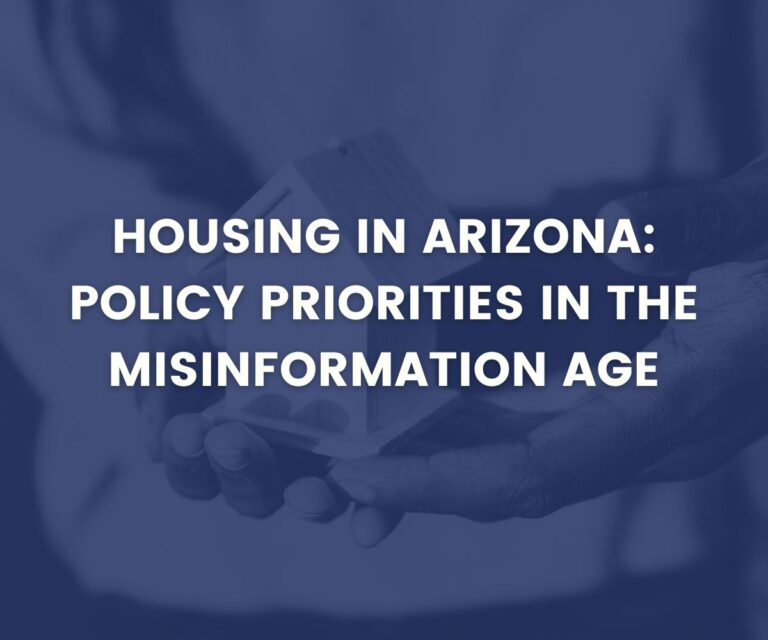
Poverty Can Be A Policy Choice
Last week, the U.S. Census Bureau released data on 2021 poverty, income, and health from the Current Population Survey (CPS) and American Community Survey (ACS). This national and state-level census data demonstrates that policy change has the power to lift Arizona families out of poverty and improve access to medical coverage. ACS data between 2019 and 2021 show:
- The proportion of Arizonans living in poverty dropped from 13.5 percent to 12.8 percent — reaching the lowest poverty rate in the last decade.
- Arizona’s child poverty rate dropped nearly two percentage points from 18.8 percent to 16.9 percent — moving from the 13th-highest child poverty rate to 20th among the states and DC.
- Real median household income for Arizona households increased by $3,293 (in 2021 dollars) to $69,056 from $65,763. Despite rising employment and growing wages, not all Arizonans saw meaningful income increases — African American households gained only $36 and Asian households gained $395, while American Indian and Alaskan Native household incomes dropped by $1,096 between 2019 to 2021.
State-level data on the Official Poverty Measure from the ACS offers a picture of how Arizona fared in 2021.
In both 2020 and 2021, the federal government provided large-scale assistance to families and individuals in the face of an unprecedented global crisis. National economic and health policies like the expansion of the child tax credit, economic impact payments, and enhanced Medicaid resulted in historic national declines in poverty and boosted access to health care. National data from the U.S. Census Bureau’s Supplement Poverty Measure (SPM) shows that these temporary federal programs prevented millions of Americans from experiencing greater financial hardship and drove progress for child poverty —which reached a record low of 5.2 percent nationally.
Overall, federal policies and programs shielded many Arizonans from severe hardship and helped shorten the country’s economic crisis in 2021. Unfortunately, improvements in poverty, income, and health coverage will disappear in the coming years without long-term state investments. Arizona policymakers must invest and expand state policies and programs to maintain and improve the economic well-being of all Arizonans.
- Increasing access to meals for children in schools – When household incomes are squeezed, adequate and nutritious food is often cut to preserve family budgets. The recent end of Arizona’s COVID-19 Emergency Declaration eliminated many options for families, including school meals. Evidence shows that children experiencing food insecurity are less likely to learn and can lead to long-term development setbacks. To help address this issue, Arizona’s policymakers can adopt universal school meals for all children.
- Expanding the eligibility of the Temporary Assistance for Needy Families Program (TANF) – More than any other state, Arizona limits pathways to participating in the TANF cash assistance program. Last year, only 6 percent of Arizona families experiencing poverty participated in the program. Between May and June 2022, more than 10 percent of these families lost access to the program due to the end of the state COVID-19 Emergency Declaration. Arizona policymakers can better support Arizona’s lowest income earners by expanding access to and adequacy of this important program.



